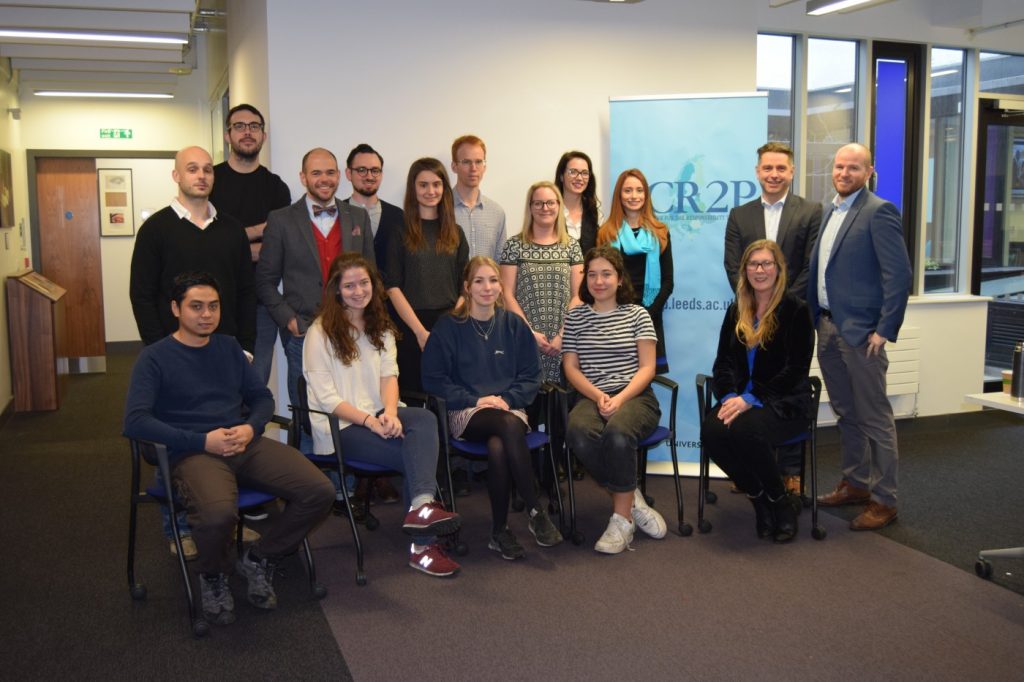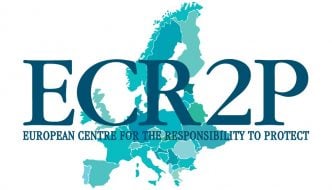Tackling mass murder through academia: ECR2P’s second annual lecture @ Leeds Uni

Photo Credit: European Centre for the Responsibility to Protect, University of Leeds
This Thursday, November 30th, Leeds University host Ivan Šimonović, UN Assistant-Secretary General and Special Advisor on the Responsibility to Protect. The event sold out in record time.
Jack Simpson caught up with Adrian Gallagher, Associate Professor in International Security at the University of Leeds and Research Director to the European Centre for the Responsibility to Protect, to discuss the event and the importance of RtoP.
What is the Responsibility to Protect?
The Responsibility to Protect, or RtoP for short, is an agreement forged in 2005 at the United Nations. It reflects the international community’s attempt to stop genocide, war crimes, crimes against humanity, and ethnic cleansing. Since 2005, the RtoP has been invoked in 64 UN Security Council Resolutions. This comes as the UN responds to genocide, war crimes, crimes against humanity, and ethnic cleansing in countries such as Libya, Syria, South Sudan, the Central African Republic, Mali and the Democratic Republic of Congo, to name just a few. This violence has seen over 1 million people killed, 100,000s displaced, 10,000s raped, and millions more traumatised.
How did the centre start?
We launched the European Centre in December 2016. This is the third centre, in that there is a Global Centre for RtoP (New York) and an Asia-Pacific Centre for RtoP (University of Queensland). I was always conscious that European governments were often involved in RtoP-type action but that there was no European Centre to coordinate researchers and policymakers across Europe. The Centre was therefore launched at the University of Leeds and is partnered with The Hague and the Budapest Centre. We are going from strength to strength as we have around six staff and eight PhD students working on this topic. The European Centre is therefore very much focused on producing cutting edge research.
Can you tell us more about the second annual lecture?
Yes. On Thursday November 30th ECR2P welcomes UN Assistant-Secretary General and Special Advisor on the Responsibility to Protect Ivan Šimonović to the University of Leeds. Šimonović fulfils an extremely important role at the United Nations and works on a day-to-day basis to try and get the United Nations and Governments around the world to fulfil their RtoP. We are delighted to welcome him to the University of Leeds and we have sold around 350 tickets. For those that cannot make it, we will have a video on our website.
How did your interest in R2P develop?
When I was an undergraduate, I studied a module on The Politics of Mass Murder. It focused on mass violence in Nazi Germany, the Soviet Union, Rwanda and Darfur. It was basically about why leaders used mass violence as a strategy, the fact that many members of the public joined in, and the failure of the international community to respond. I went on to complete a PhD on ‘Genocide and Its Threat to Contemporary International Order’ (Palgrave Macmillan, 2013) which is available at outlets such as Amazon. I now teach a module on The Responsibility to Protect to 90 third-year undergraduate students at the University of Leeds, some of which have gone on to study PhDs themselves in this area – Blake Lawrinson, Georgiana Epure, and Samuel Jarvis.
Is there social media people can follow?
Yes. We have an ECR2P Twitter account which we use to share the latest research and information on mass violence from around the world. Also, our website.
Are there interesting developments in the world right now that you think R2P can help us understand?
Definitely. To give two examples that people will be seeing on the news, mass violence has become an everyday practice in Myanmar and the Philippines since 2016. In Myanmar, the Rohingya have been targeted through systematic burning of villages, rape and killing. This has led to an estimated 5,000 dead and 607,000 refugees, according to the UN Human Rights Council. The UN labelled the crisis a “textbook case of ethnic cleansing”. In the Philippines, President Duterte has likened himself to Adolf Hitler and stated that he wishes to exterminate 3 million drug users. Since June 2016, 12,500 drug users have been murdered through state-led campaigns that the Prosecutor of the International Criminal Court has said may amount to “crimes against humanity”. But neither of these arose over night. To return to Chalk and Jonassohn’s (1992) seminal comparative case study, the authors found that in every case of mass violence they studied, groups were destroyed because they were viewed as unequal. They drew attention to the process of dehumanisation that led people, on mass, to destroy other humans because they saw them as sub-human. In the context of Myanmar and the Philippines, we can trace the dehumanisation of these groups back decades. In a nutshell, therefore, academic research can help us understand the underlying dynamics involved in mass violence.
What are you writing about at the moment?
I have published around 200,000 words on mass violence since joining Leeds in 2012. I am now looking to develop a second book. This one will focus on international assistance in Mali, the Central African Republic, and South Sudan. These are extremely interesting cases for very different reasons. But you will just have to wait till the book is finished to find out. Hopefully, 2019.
The second annual ECR2P lecture will be held on Thursday November 30th 5 – 7pm at the Conference Auditorium 2 (GM.01), University of Leeds. For those that cannot make it, see the video here.
Filed under: Politics
Tagged with: crime against humanity, ethnic cleansing, European Centre for the Responsibility to Protect, genocide, Ivan Šimonović, Responsibility to Protect, UN, war crimes

Comments